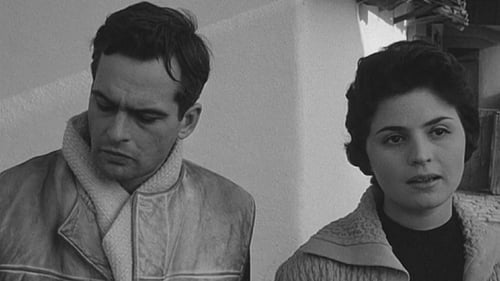János Koltai
Nascimento : 1935-06-08, Budapest, Hungary

Perczel

The scene is Ukraine. In 1943, after the Hungarian' defeat at the river Don, soldier Balogh decides to visit his family.

Priest
This Hungarian film chronicles the slow deterioration in the life of Juli, a farmer's wife. As the countryside grows ever more deserted because people are moving to towns or large collective farms, she spends more and more time alone. Despite her best efforts to appreciate her situation, her despair grows. The loneliness is briefly interrupted when she and her husband take in an old woman and care for her, but the woman dies. Shortly after her son visits, she is killed in an accident which may have been a suicide. ~ Clarke Fountain, Rovi

Lõrinc pap
The film is a historic parable about the topicality of revolution. 1514. The peasants' uprising is over, Dózsa has been arrested. Werbőczy tries to get the imprisoned peasant leader deny the revolution and offers him the lives of his people in exchange.

Gyönyörű, párttitkár
This ironic comedy is set in the god-forsaken Kiskúnbékás, at the end of the fifties. There are no jobs, the town's "golden team", who once were third class national soccer players have scattered

Peasant
Silêncio e Grito de Miklós Jancsó é ambientado durante uma era turbulenta de inquietação, medo, perseguição e terror, que permeia todos os cantos da sociedade pós-Primeira Guerra Mundial húngara. Em 1919, depois de poucos meses de governo comunista, a República Húngara dos Concílios foi vítima de uma contra-revolução nacionalista. O Almirante Horthy, líder do movimento nacionalista de extrema direita, torna-se o auto-proclamado regente da Hungria, e assume o poder como chefe de Estado legal. Soldados do efémero exército vermelho húngaro estão agora em fuga de implacáveis polícias secretos e unidades de patrulha da Guarda Real nacionalista. Se capturados, os ex-soldados do Exército Vermelho são executados sem piedade ou julgamento adequado. István Cserzi, um ex-soldado do Exército Vermelho fugiu para as Grandes Planícies Húngaras e refugiou-se numa fazenda, administrada por duas mulheres simpáticas. Devido à generosidade destas mulheres e um antigo amigo de infância...

A 40-year-old sculptor returns home to witness the baptism of his young nephew. His return prompts a series of flashbacks to his youth and the political upheaval experienced by his family and friends.

Fülöp Bánó
The changing and turbulent history of Hungary is seen through the eyes of three men over a 30-year period in this somber drama. The three recall the highlights of their lives in flashbacks as they reminisce in the mid 1960s. The venerable trio begin their story in the 1930s, through World War II, and the decade beyond the communist invasion of 1956.

Kerekes (Antal Pager) acredita que é procurado pela polícia quando seus amigos fazem uma brincadeira com esse drama incomum de comédia. Ele retorna à sua cidade natal onde foi acusado de delatar um farmacêutico judeu e a esposa do farmacêutico aos nazistas. Com seus amigos seguindo-o, Kerekes tenta descobrir o que aconteceu com o casal depois que eles foram deportados. Depois de ser submetido a um julgamento simulado por seus amigos - e considerado culpado - Kerekes fica desesperado e tenta se matar. Flashbacks e alucinações são empregados para contar esta história que ocorre durante o julgamento de Eichmann. Tanto o filme quanto Antal Pager ganharam alguma publicidade indesejada quando um artigo da Variety de 23 de abril de 1967 acusou Pager de ser um colaborador nazista por seu papel em um filme antissemita durante a Segunda Guerra Mundial.

Múmia

Adolf Gottlieb
Andras Kovacs' film, considered one of the most important Hungarian films of the 1960s, centers around four men who await trial for their involvement in the massacre of several thousand Jewish and Serbian people of Novi Sad in 1942. Each denies any responsibility, claiming that they were only following orders. The film is significant for its willingness to address the subject of Hungary's role in WWII, which was taboo at the time of the its release.

Török Mihály
For the first time after 11 years, Simon, a young historian visits the village of his childhood at Balaton and Aunt Lina, his foster-mother. He gets upset by what he experiences there: the old woman's troublesome and vexing everydays, her quiet sadness. He is overwhelmed by his own memories, the death of his foster-father and by everything he was not aware of before, or he simply wanted to forget.

Varjú Béla
After the failure of the Kossuth's revolution of 1848, people suspected of supporting the revolution are sent to prison camps. Years later, partisans led by outlaw Sándor Rózsa still run rampant. Although the authorities do not know the identities of the partisans, they round up suspects and try to root them out by any means necessary.

Hazatérõ zsidó
In the final days of World War II, a young Hungarian is making his way home, through countryside full of the debris of war, when he is captured and imprisoned by Russians. Left in the custody of a young Russian soldier, the two youths form a friendship in spite of not speaking each other's language.

The story recalling the spirit of Gilgamesh, the Sumerian king quarrelling with his approaching death, takes place in a cancer hospital in Budapest. Dávid, the young ethnography scientist resigned to his lot and is indifferent to his approaching death. His specialist reckons, however, that such a searching and stubborn mind with thorough knowledge of the nature of his own illness, will be able to fight death.

Iván Kovács
A young doctor undergoes a spiritual crisis when he returns to his rural home.

Artist
Huszárik's graduation film was another short entitled Groteszk (Grotesque) in 1963 about a strange train voyage of an artist carrying his own picture.

Sebők Zoltán, the brain surgeon, performed a secret abortion on his lover and the woman died. The man waiting for the autopsy (and his arrest) escapes to his father's villa at Lake Balaton.













